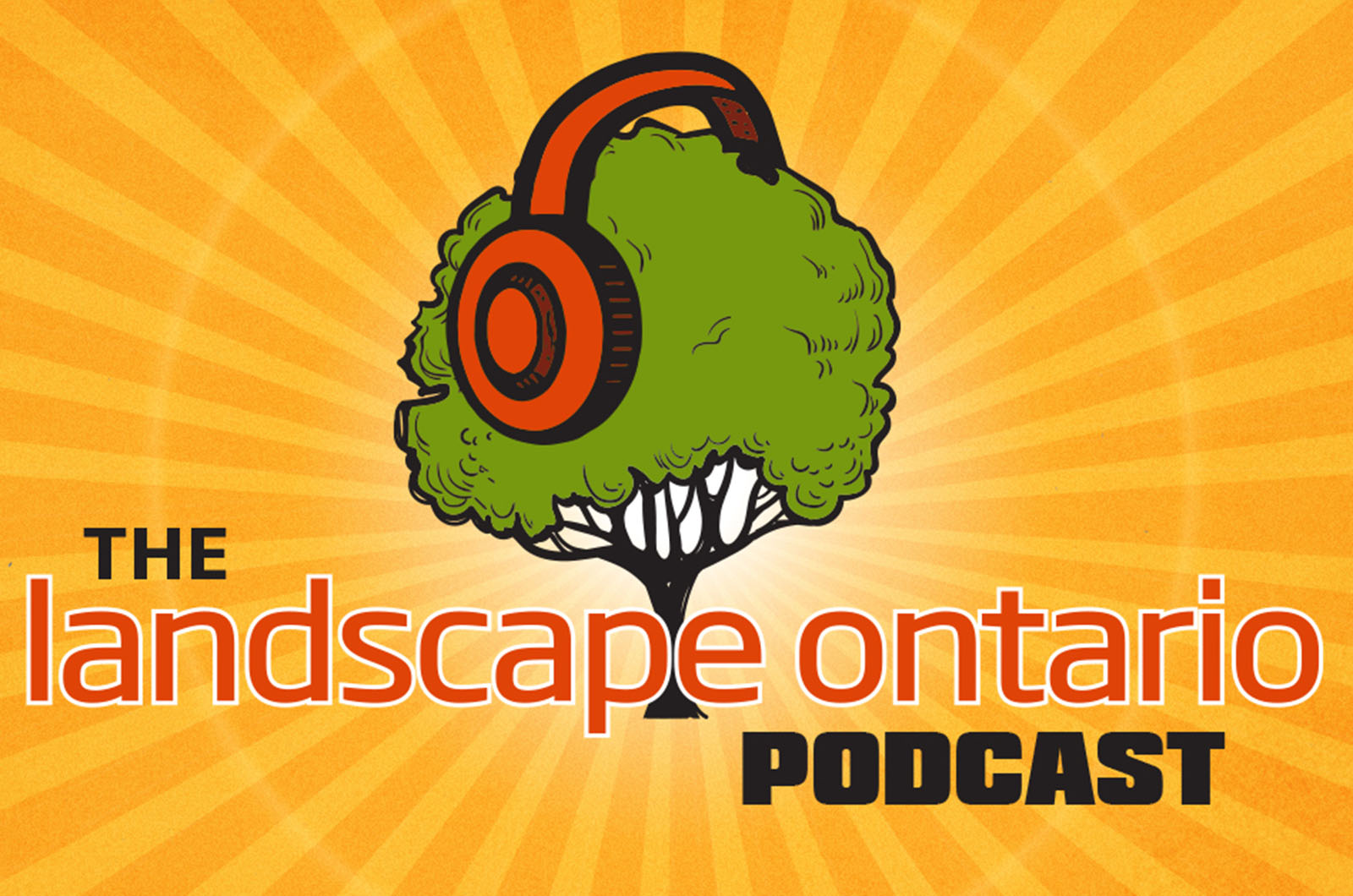March 15, 2024

Growing confident leaders
Interview with Charolette Cascioli by Karina Sinclair
This interview has been edited for clarity and length.
The demand for skilled workers in landscape and horticulture is higher than ever. HR consultant Charolette Cascioli joined the Landscape Ontario Podcast to explore different solutions for this growing problem — and shared her insights on attracting better candidates by broadening the prospective talent pool, the risks of ignoring company culture and how participating in ongoing training programs like those offered by LO can help strengthen the leadership skills needed to build a great team culture.
Temporary foreign workers are another option. The government is recognizing that our industry needs workers. And even though we're seasonal in some cases, we are demonstrating very successfully that we don't have enough candidates for our positions. And so candidates are coming across from Barbados, Philippines, Mexico, El Salvador, multiple countries. I think that's a really great opportunity for our contractors to expand their talent pool across the borders.
Also, making sure we hire for attitude versus aptitude. I think that's a really important concept to deal with this labour shortage. Landscape Ontario has phenomenal training programs that are very unique for small to medium businesses. We have new entrants who are being trained on health and safety, plant ID and weed identification, turf grass — these are things that we don't have time to train people on in the field so why not make use of the GROW New Entrant program?
And then, when you have an employee who is doing really well in those skills, and is also demonstrating leadership capabilities, why not put them in the GROW Supervisory Training Program? It's completely free and it's a phenomenal program. Sixteen hours of foundational supervisory skills training, along with coaching sessions and goal setting. This is top notch training that's being provided free to our contractors. So make use of that.
A pleasant working environment and culture are still ranking as some of the most important components of choosing an employer. You're spending a third of your time at work; you want to make sure that it's a really great culture.
Because of that, what are you offering to these employees? How are you setting yourself apart? Would you want to work for your company? Those are the kinds of questions I always encourage people to think about. Culture is a big part of that.
We have to prioritize the human element of our businesses and recognize that productivity and efficiency come when employees are engaged, inspired and connected to their coworkers. This all comes from our culture that we're building in our companies.
There's this terminology that's been floating around lately. It's called quiet quitting. And essentially, it's what it says — it's employees just giving the bare minimum. Your company is going to suffer as a result of that. You want to tap into your employees’ discretionary effort. And that's what building a company culture is.
It's quite different from all the corporate training facilitation that I've done. In this program, attendees are nominated because of their leadership capabilities. They want to be there. They want to grow and develop, and the owner is often very closely connected to that individual as they go through this program.
It's really for any sector: landscaping, construction, irrigation, hardscape, softscape, maintenance, snow removal. Anyone within this umbrella of our industry is able to attend and participate in this program.
To learn more, visit growtraining.ca.
This interview has been edited for clarity and length.
The demand for skilled workers in landscape and horticulture is higher than ever. HR consultant Charolette Cascioli joined the Landscape Ontario Podcast to explore different solutions for this growing problem — and shared her insights on attracting better candidates by broadening the prospective talent pool, the risks of ignoring company culture and how participating in ongoing training programs like those offered by LO can help strengthen the leadership skills needed to build a great team culture.
From your perspective as a human resources professional, what do you think would help employers fill their vacant roles?
We really do need to be looking outside of our industry. That's one of the suggestions I always make to our contractors. I’ve heard some phenomenal stories of outstanding supervisors and lead hands that just came completely outside of our industry, like culinary and retail. When you see a resumé come through your desk, don't just exclude that candidate because they don't have landscaping experience. Look beyond that.Temporary foreign workers are another option. The government is recognizing that our industry needs workers. And even though we're seasonal in some cases, we are demonstrating very successfully that we don't have enough candidates for our positions. And so candidates are coming across from Barbados, Philippines, Mexico, El Salvador, multiple countries. I think that's a really great opportunity for our contractors to expand their talent pool across the borders.
Also, making sure we hire for attitude versus aptitude. I think that's a really important concept to deal with this labour shortage. Landscape Ontario has phenomenal training programs that are very unique for small to medium businesses. We have new entrants who are being trained on health and safety, plant ID and weed identification, turf grass — these are things that we don't have time to train people on in the field so why not make use of the GROW New Entrant program?
And then, when you have an employee who is doing really well in those skills, and is also demonstrating leadership capabilities, why not put them in the GROW Supervisory Training Program? It's completely free and it's a phenomenal program. Sixteen hours of foundational supervisory skills training, along with coaching sessions and goal setting. This is top notch training that's being provided free to our contractors. So make use of that.
How important is culture when attracting ideal candidates?
So many times we just think it's about compensation, benefits or additional perks. But research time and time again points to job seekers looking for a number of factors.A pleasant working environment and culture are still ranking as some of the most important components of choosing an employer. You're spending a third of your time at work; you want to make sure that it's a really great culture.
Because of that, what are you offering to these employees? How are you setting yourself apart? Would you want to work for your company? Those are the kinds of questions I always encourage people to think about. Culture is a big part of that.
Considering a business owner has so many responsibilities to worry about, what are the risks of not taking the time to invest in company culture?
They're huge! A majority of the workers are not engaged. And companies should ask themselves what can be done to foster a strong culture of connection and engagement.We have to prioritize the human element of our businesses and recognize that productivity and efficiency come when employees are engaged, inspired and connected to their coworkers. This all comes from our culture that we're building in our companies.
What does employee disengagement look like in a landscaping and horticulture business environment?
When an employee is not really engaged in their workplace, they're going to be very discretionary where they put their effort and energy. They're going to do things like call in sick frequently. They're going to come in late. They're not going to be fully engaged in your team meetings. They're not going to come up with new ideas and solutions. And they're going to consistently miss deadlines and lack enthusiasm.There's this terminology that's been floating around lately. It's called quiet quitting. And essentially, it's what it says — it's employees just giving the bare minimum. Your company is going to suffer as a result of that. You want to tap into your employees’ discretionary effort. And that's what building a company culture is.
How can the Landscape Ontario GROW Supervisory Training Program help address these culture concerns?
I have the opportunity to facilitate the GROW Foundational Supervisory Program. We explore how does a team form and develop? How do you lead through changes effectively? How do you manage conflict? We talk through building communication skills and understanding barriers to communication, and there's a lot of self-reflective exercises built into the program, which I really love. We've also built in a lot of case studies that are very relevant to what all of our individuals are facing on a day to day basis.It's quite different from all the corporate training facilitation that I've done. In this program, attendees are nominated because of their leadership capabilities. They want to be there. They want to grow and develop, and the owner is often very closely connected to that individual as they go through this program.
It's really for any sector: landscaping, construction, irrigation, hardscape, softscape, maintenance, snow removal. Anyone within this umbrella of our industry is able to attend and participate in this program.
To learn more, visit growtraining.ca.
